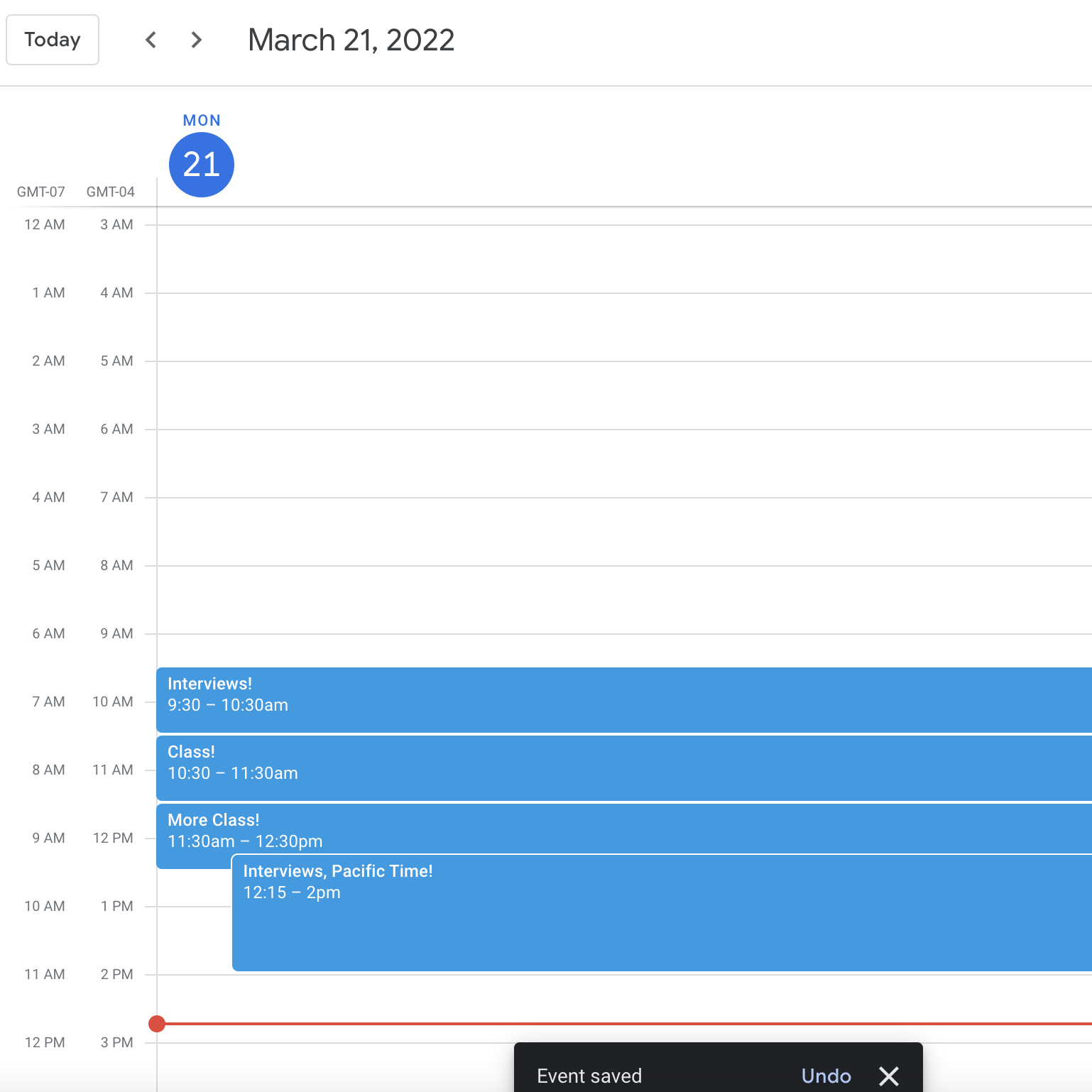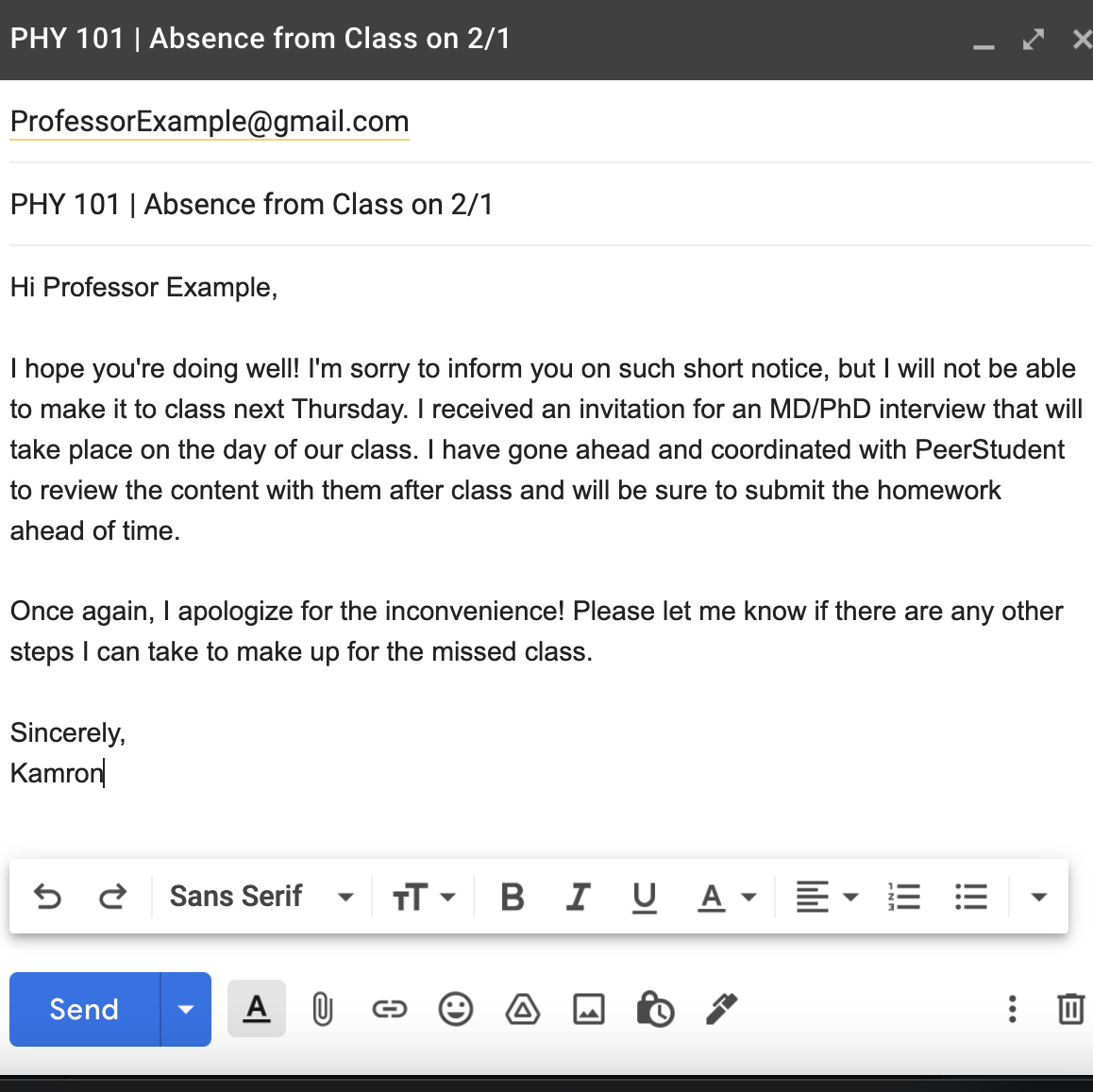Earlier this winter, I received an email inviting me to a day’s worth of interviews for an MD/PhD program. This invitation included a schedule with Zoom meetings that extended much later into the day than I expected. As a result, these meetings conflicted with some of my classes as well as a meeting for an extracurricular activity.
We’ve all been there: something comes up and we can no longer make it to a class or meeting on our calendars. Whatever the reason, there’s a special kind of stress that comes with realizing you’ll need to cancel on someone. When will you have a chance to make this up? Will your colleagues and professors be upset with you?
I’ve also been on the other side of the equation: as a supervisor for Murray-Dodge Café, I’ve received my fair share of emails from students needing to miss a shift or a meeting. While the best way to handle these situations is to avoid them altogether, that isn’t always possible, so in this article, I’ll share some of my tips for handling these sticky situations!

Slow it down: The exact moment I became aware of this conflict with my interviews, I was tempted to fire off an email about missing class to put the whole debacle behind me. Yet I found it beneficial to take a few minutes to just breathe and explicitly reflect on which event to attend: for me, my interviews were both professionally important and relatively unmalleable, and so I was compelled to work around my other obligations. Outside of exceptional circumstances, however, commitments to attend obligations that are scheduled in advance of other meetings should be honored!
Communicate with respect: Cancellation emails can come across as unapologetic, impolite, and entitled with regard to other peoples’ time. To avoid this, be honest and prompt in communicating to the involved parties. You are never obligated to spell out the details of why you won’t be able to attend – nor is that particularly expected – but this may be useful since an explanation of what’s going on can assure your peers/professors/supervisor that your absence is not due to a lack of willingness on your part. One professor of mine, for example, was ecstatic on my behalf when I wrote to them regarding missing a seminar because of an interview.

Consider what’s next: The responsibility is yours to work around the consequences of canceling/missing a class or meeting. When I wrote to my professor regarding missing a class for an interview, I had already coordinated with another student to borrow their notes and had made plans to meet with them to talk over the missed material the next day. By communicating these arrangements to my professor, I was demonstrating that I truly did care about the course and that I was taking ownership over my own learning. My professor ultimately was kind enough to offer to meet with me individually to review the material outside of class.
No one ever plans for schedule conflicts: they are inconvenient and often stressful. Yet if you do your best to prevent them from happening in the first place and handle them responsibly and respectfully, then everything will work out.
– Kamron Soldozy, Natural Sciences Correspondent

